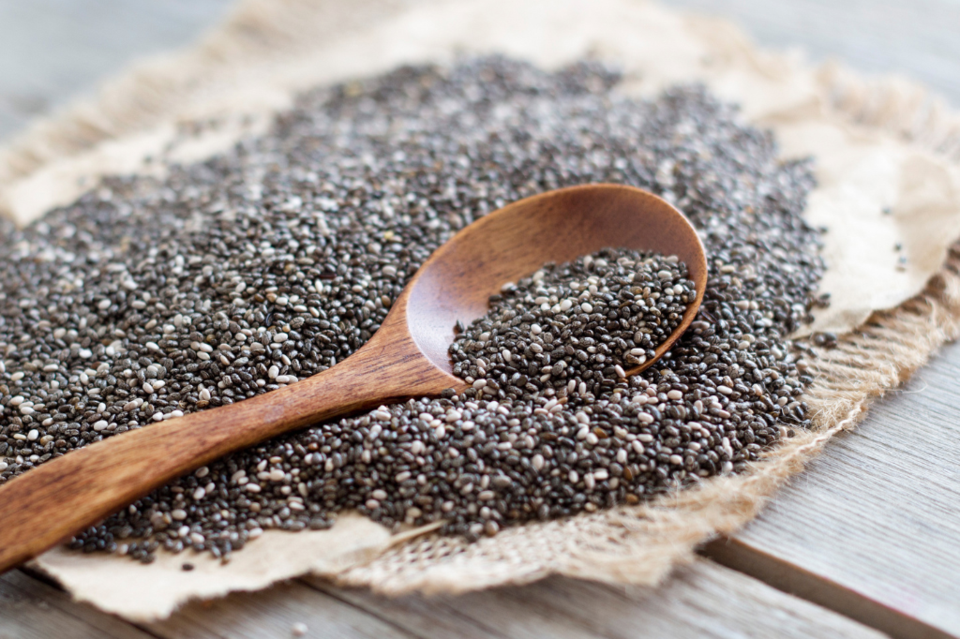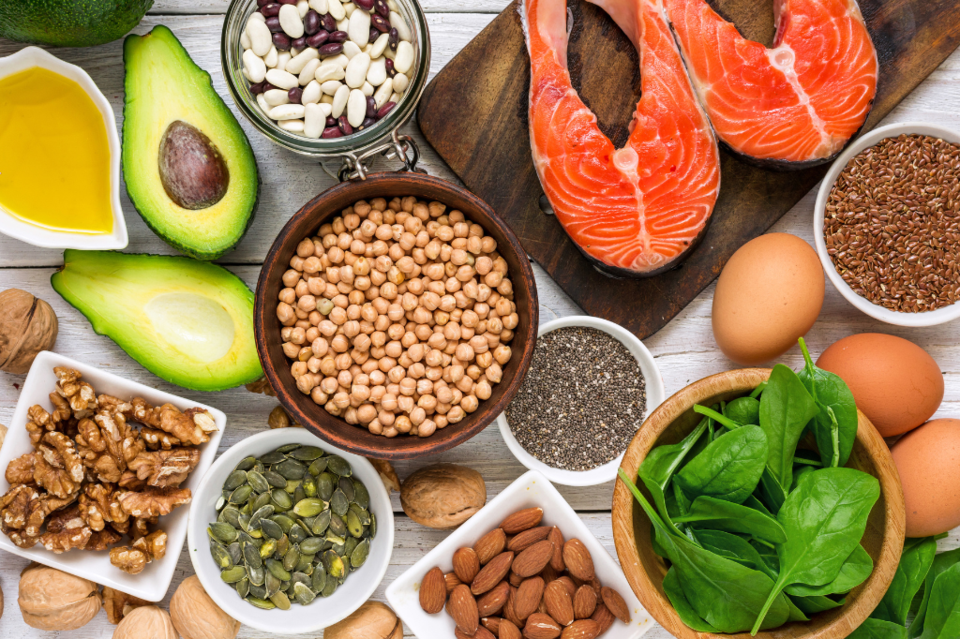You've undoubtedly heard about the health benefits of omega-3 fatty acids, but do you truly understand their impact on your overall well-being?
These essential fats are more than just fancy buzzwords; they're the unsung heroes quietly working to keep many primary bodily functions humming along in the healthiest way possible.
Join us as we dive deep into the world of omega-3s and explore just why they should be a consistent part of your diet.
Why Are Omegas So Important to Overall Health?
Omega-3 fatty acids are polyunsaturated fats essential for optimal health. Unlike other nutrients, our bodies cannot produce omega-3s, meaning we must obtain them from our diet. These fats play a central role in brain function and heart health, while keeping inflammation at bay. Research shows that omega-3s contribute to various health benefits, including reduced risk of heart disease, improved mental health, and better joint function (more on their extensive health benefits in just a second).
Do Most Canadians Get Enough Omega-3s?
Unfortunately, most Canadians do not get the recommended omega-3 fatty acids. While surveys on this particular topic are few and far between, a 2015 Statistics Canada survey showed that 40% of Canadians need more omega-3 fatty acids.
Omega-3 VS Omega-6: The Balance Problem
So, what differentiates omega-3s from omega-6 fatty acids? Both are polyunsaturated fats, but they play roles in the body. Omega-6s are more readily available in the average diet, mainly from vegetable oils, processed foods, and snacks. Most people consume up to 15 to 25 times more omega-6 than omega-3, potentially leading to an imbalance that can increase inflammation, obesity, and the risk of chronic diseases. Balancing a better 3-to-6 ratio (experts recommend between 1:1 and 4:1, omega-3 to omega-6) is crucial because excess omega-6 can compete with omega-3 for conversion in the body, interfering with the beneficial effects of omega-3s.

The 3 Types of Omega-3s: ALA, EPA & DHA
- ALA (Alpha-Linolenic Acid): Plant-based omega-3 found in flaxseed, chia seeds, and walnuts.
- EPA (Eicosapentaenoic Acid): Primarily found in fatty fish, crucial for reducing inflammation.
- DHA (Docosahexaenoic Acid): Essential for brain and eye health and is also found in fatty fish.
Risks of Not Getting Enough Omega-3s
Being deficient in omega-3 fatty acids can lead to several health issues. Studies have linked low omega-3 intake to a higher risk of cardiovascular diseases, depression, anxiety, and cognitive decline. Additionally, omega-3 deficiency has been associated with inflammatory disorders, high blood pressure, and even certain types of cancer.

How Much Do You Need?
To meet your omega-3 needs, aim for at least two servings of fatty fish per week. This provides a good amount of EPA and DHA. Additionally, incorporating plant-based sources like flaxseed, chia seeds, and walnuts can help boost your intake of ALA, another type of omega-3 fatty acid. Remember, while your body can convert some ALA to EPA and DHA, it's inefficient. For optimal benefits, a combination of both plant and animal-based sources is recommended.
Health Benefits of Omega-3 Fatty Acids
On the flip side, getting enough omega-3s leads to many health benefits. Here are the top 8 science-backed benefits:
- A healthy heart: Omega-3s are well-known for lowering blood pressure, reducing triglycerides, and decreasing the risk of arrhythmias.
- A sharp brain: DHA, a type of omega-3, is a vital component of brain tissue associated with improved cognitive function and reduced risk of Alzheimer’s disease.
- Mental health: Omega-3s can improve symptoms of depression and anxiety, promoting better mood regulation.
- Joint health: These fatty acids possess anti-inflammatory properties that can alleviate arthritis symptoms and other inflammatory joint disorders.
- Eye health: Omega-3s, like DHA, support eye health and may protect against age-related macular degeneration.
- Glowing skin: Omega-3s contribute to skin hydration and may prevent acne and psoriasis flare-ups.
- Prenatal health: Incorporating omega-3s during pregnancy is essential for the fetus's brain and visual development.
- Improved immune function: Omega-3s can enhance immune response and help fight off infections.

Food Sources VS Supplements
While supplements can help bridge the gap when dietary intake is insufficient, experts recommend first turning to whole-food sources of omega-3s as your primary source. Whole foods contain additional nutrients like vitamins and minerals that contribute to overall health (think additional fibre or protein, for example). If you find it challenging to meet your omega-3 needs through food alone, consider a high-quality supplement, but it’s always a good idea to consult a healthcare provider first.
Top Food Sources of Omega-3s
Incorporating omega-3-rich foods into your diet is easier than you think. Here are 5 excellent sources, even if you’re not a fan of fish:
- Fatty fish: Salmon, mackerel, sardines, and trout are all excellent sources.
- Chia seeds: Packed with ALA (alpha-linolenic acid), these tiny seeds are an easy add-in for smoothies and yogurt.
- Flaxseeds: Ground flaxseeds can be sprinkled on cereals or incorporated into baking.
- Walnuts: A great snack option, walnuts provide a substantial amount of ALA.
- Algae oil: An excellent vegetarian source of omega-3s derived from algae.
Bottom line
Incorporating omega-3 fatty acids into your diet is a smart investment for long-term health and well-being. With just a few simple adjustments, you can improve your omega-3 intake, reduce the risk of chronic diseases, and start reaping these essential fats' benefits. Aim to include omega-3-rich foods daily and consider dietary supplements if necessary.
About the Author

Alicia is a journalist and editor in digital and print media specializing in health, nutrition, fitness, and wellness. She was previously the Editorial Director of Clean Eating and Vegetarian Times. Her work has also appeared in Hone Health The Edge, Yoga Journal, Women’s Running, and Oxygen, among others. In addition to being a content creator, she's an ISSA-certified nutritionist, certified personal trainer, and fitness studio owner in Toronto. Alicia loves spreading the word about helpful, science-backed health information, and she can be contacted via her website at aliciamtyler.com.




